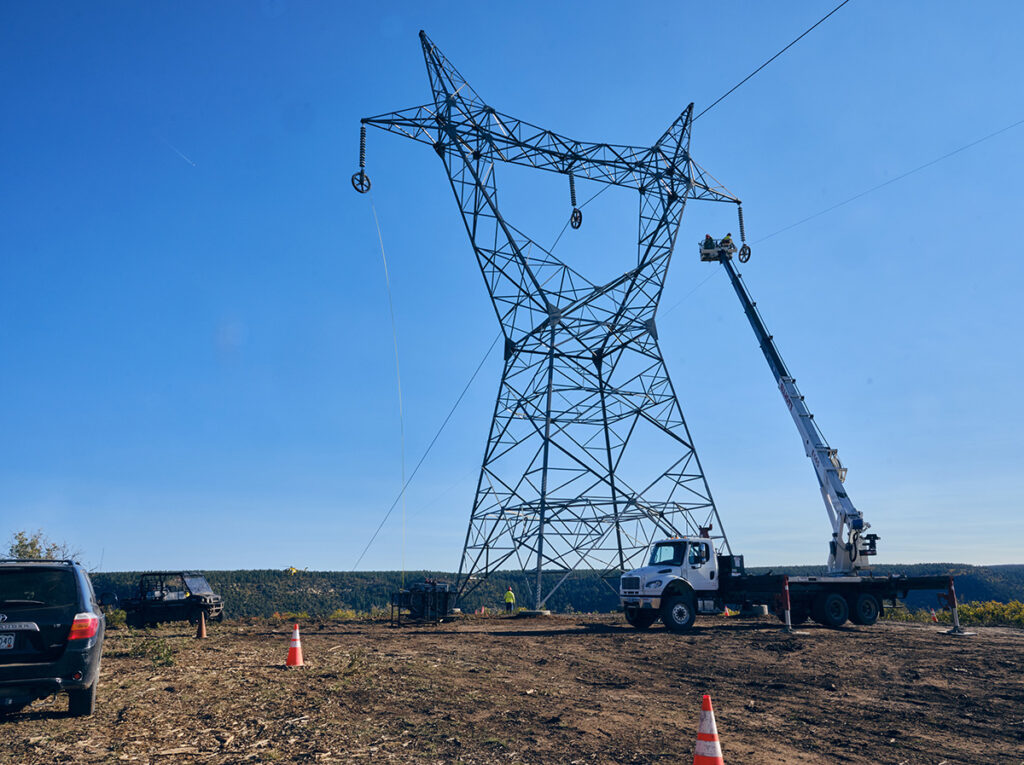
After years of advocacy by NRECA and electric co-ops, federal agencies are releasing new National Environmental Policy Act procedures that will simplify permitting of cooperatives’ energy and broadband projects.
The Trump administration’s new procedures, which reflect recent NEPA reforms from Congress and court rulings on the law, will benefit a wide range of co-op projects. Reviews under NEPA frequently take years to complete and are required when a project needs a government permit or receives federal grants or loans.
“The announcements deliver what we’ve been requesting for years—simplified, streamlined agency procedures that will allow us to more quickly get projects reviewed and approved,” NRECA CEO Jim Matheson said. “This change will benefit all 900 electric cooperatives and will help streamline many co-op projects from Rural Utilities Service loan applications, building new generation, expanding new distribution infrastructure and more.”
On July 1, updated NEPA procedures were released by the Departments of Agriculture, Commerce, the Interior, Energy, Transportation and Defense, the Federal Energy Regulatory Commission and the U.S. Army Corps of Engineers.
The reforms will help expedite infrastructure development and cut project costs by:
- Setting deadlines and page limits on NEPA environmental reviews, as required by the Fiscal Responsibility Act of 2023 (two years and 150 pages for environmental impact statements; one year and 75 pages for environmental assessments).
- Clarifying that NEPA does not apply to every federal action.
- Allowing agencies to more easily create and adopt “categorical exclusions” for activities that do not have significant environmental impacts.
The NEPA changes will take some time to play out as agencies work to implement them over the coming weeks and months.
The new actions came after President Donald Trump directed the White House Council on Environmental Quality in January to provide guidance to agencies on simplifying and expediting the NEPA permitting process.
The new procedures also follow a recent Supreme Court decision clarifying that agencies generally must only consider the environmental effects of the project they are reviewing rather than study indirect impacts beyond their authority.
NRECA had filed a friend-of-the-court brief in the case urging better guardrails around the law’s application.
“For years NRECA has advocated for more efficient and predictable NEPA reviews and permitting processes that are essential for modernizing our nation’s infrastructure,” NRECA Regulatory Affairs Director Viktoria Seale said. “This overhaul implements bipartisan amendments to NEPA in 2023 that will focus the scope of environmental reviews and expedite them.”
Co-ops have testified before Congress on the need for permitting reforms to help them meet growing demand for reliable, affordable power and high-speed internet service. Many of their recommended reforms were included in the new agency procedures, including the time limits for NEPA reviews.
But more changes are needed to speed infrastructure development, including policies to limit litigation that could delay crucial projects, Seale said.
“NRECA will continue to advocate for common-sense reforms such as reasonable time limits for filing lawsuits and requiring parties wishing to challenge a NEPA review to have raised their concerns during the public comment period,” she said.
Molly Christian is a staff writer for NRECA.